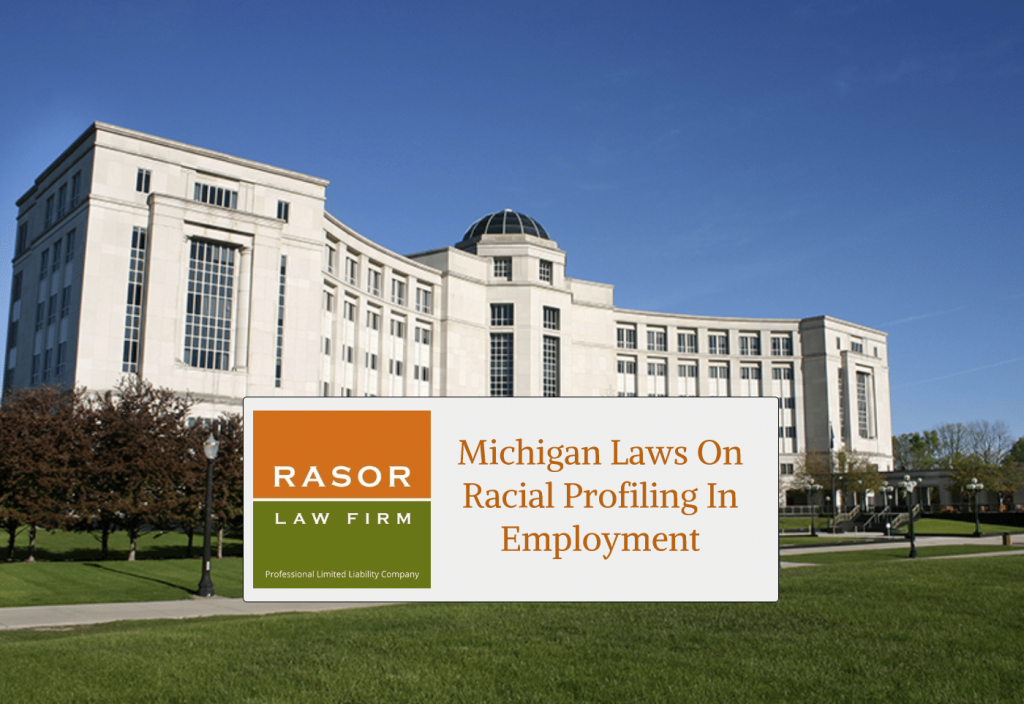Racial profiling in employment is a serious issue that continues to affect workers across Michigan. Whether it occurs subtly during the interview process or overtly through workplace discrimination, the impact on victims can be devastating. Racial profiling employment practices are not only unethical but also illegal. Employees and job seekers deserve a fair chance to succeed based on their qualifications, not judged unfairly due to race or ethnicity. Understanding the laws protecting individuals in these situations is essential for holding employers accountable and protecting your rights. If you or someone you know has faced employment discrimination rooted in racial bias, this article will guide you through what the law says, how racial profiling occurs in the workplace, and what steps you can take to seek justice. In Michigan, legal protections are in place to prevent employers from engaging in discriminatory practices, but action must be taken to enforce those rights. By becoming informed and proactive, victims can begin to navigate the long road toward fairness and dignity at work. Let’s explore what racial profiling in employment really means and how Michigan law addresses it.
Understanding racial profiling in employment settings
Racial profiling employment refers to unjust or prejudicial treatment of individuals in hiring, promotion, discipline, or dismissal decisions based on race, ethnicity, or national origin. It can appear in various forms, both overt and subtle, leaving many victims uncertain about how to speak up or seek justice. At its core, racial profiling assumes an individual’s capabilities or trustworthiness based on their racial background instead of performance or merit.
One example of this might be a qualified Black woman being passed over for a management role in favor of a less-experienced white coworker. Another common case involves Latino applicants whose resumes are routinely filtered out due to ethnic-sounding names. These instances reveal how bias—whether conscious or unconscious—shapes employment practices. Michigan law does not tolerate such conduct. The Elliott-Larsen Civil Rights Act (ELCRA) specifically prohibits discrimination in employment based on race, color, or national origin. Understanding the definitions and recognizing the signs is the first step in identifying these harmful practices and working toward accountability.
Why addressing racial profiling in jobs really matters
Addressing racial profiling in the workplace is critical because it prevents individuals from reaching their full potential and creates an atmosphere of fear, mistrust, and exclusion. Beyond personal impact, racial discrimination damages organizational performance, morale, and reputation. When good candidates are overlooked merely because of race or ethnicity, companies miss out on talent and opportunity.
The broader societal implications are just as severe. Racial profiling employment practices increase economic disparities and limit career advancement for entire communities. Employment discrimination adds to generational disadvantages, leaving victims emotionally and financially strained. By enforcing protections under Michigan and federal law, society moves closer to an inclusive workforce based on equal opportunity and fairness.
- A highly qualified Asian-American engineer is consistently passed up for promotion despite outperforming peers. This stifles their career growth and harms morale.
- A Black job applicant is told the position has been filled, only to learn it remained open, which perpetuates hiring inequality.
- A Latino customer service representative receives harsher disciplinary actions than white coworkers for similar mistakes, causing undue stress and career setbacks.
How racial profiling issues are handled in Michigan workplaces
- Step 1: The employee or applicant notices a pattern of unequal treatment or a decision that appears to hinge on racial characteristics rather than performance or qualifications.
- Step 2: The individual gathers evidence, such as emails, performance reviews, witness accounts, or job postings. They may decide to file a complaint internally or with HR.
- Step 3: If the internal process fails or retaliation occurs, the individual can file a formal complaint with the Michigan Department of Civil Rights or contact an attorney to pursue legal options under state and federal laws.
Expert advice for protecting yourself against racial profiling at work
Common questions about racial profiling at work in Michigan
What Rasor Law Firm can do to help you
At Rasor Law Firm, we believe every employee deserves to be treated with dignity and fairness. Our seasoned legal team has extensive experience navigating Michigan’s civil rights laws and representing clients who have been victims of racial profiling in employment. From gathering key evidence to pursuing claims through state agencies or in court, we offer clients skilled advocacy, personalized support, and peace of mind every step of the way. Whether you’re facing hiring discrimination, promotion denials, or wrongful termination based on race, we’re here to listen, advise, and fight for justice. Rasor Law Firm is committed to restoring what was unjustly taken from you and ensuring your voice is heard and respected.


